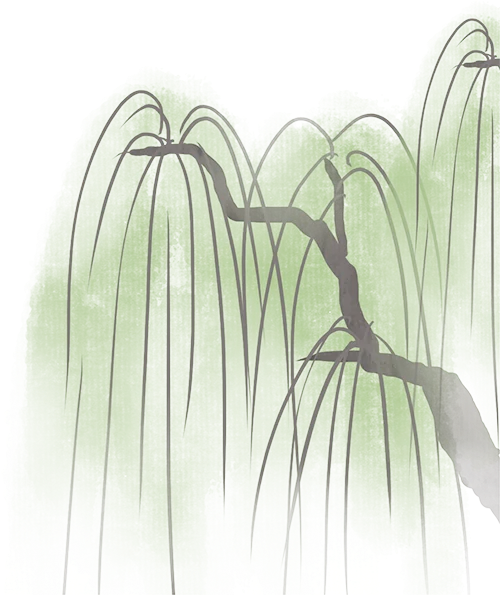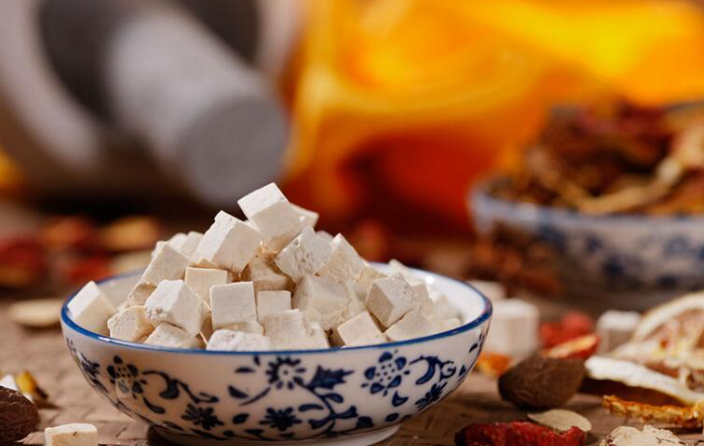A Gift from Nature: Fu Ling
Herbal Medicine
The ‘Tough Nut’ in Traditional Chinese Medicine
Everyone knows that a famous specialty of Beijing is Fu Ling Cake, which is made using one of its key ingredients, Fu Ling. Today, we will introduce the past and present of Fu Ling.

Fu Ling, also known as Yun Ling (Poria) or Bai Ling (White Poria), is unique among traditional Chinese herbs. All Chinese herbs originate from nature; some come from plants, some from minerals, and others from animals. However, Fu Ling is special as it comes from a fungus that specifically parasitizes the roots of pine trees. We are familiar with fungi, as we often consume various mushrooms (such as Jin Zhen Gu (Enoki Mushroom) and Xing Bao Gu (King Oyster Mushroom)), which are types of fungi. Unlike other fungi, which are typically soft, Fu Ling is different. Ancient people often found large, hard, stone-like masses at the roots of withered pine trees, which is Fu Ling. Fu Ling is a medicinal food that is commonly used in many regions of China when making meat soups, as it helps to neutralize the greasy components of the broth and enhances its flavor. Some Fu Ling is tightly wrapped around the roots of pine trees; when harvested, it retains some of the pine roots, and this type is called Fu Shen (Poria with Pine Root).

Fu Ling can strengthen the spleen, promote urination, and reduce swelling. Traditional Chinese Medicine (TCM) believes that overweight individuals often have phlegm-dampness, and Fu Ling is one of the enemies of fat. Some overweight individuals with diabetes can boil Fu Ling to help eliminate dampness and aid in weight loss. Additionally, for those with kidney disease who experience protein loss and subsequent edema, Fu Ling can treat this condition.
Some people believe that all Chinese herbs are suitable for making tea, which is incorrect. Certain herbs with leaves and flowers, such as Sang Ye (Mulberry Leaf), He Ye (Lotus Leaf), Ju Hua (Chrysanthemum), and Mei Gui Hua (Rose), are more suitable for brewing with hot water. However, Fu Ling is not recommended for this method; whether used medicinally or as food, it exists in a hard block form. When preparing Fu Ling, it is necessary to crush it into powder or cut it into thin slices to maximize its effectiveness. Some people complain that Chinese medicine is ineffective because they do not fully grasp the correct method of preparing it.
Fu Shen, which contains pine roots, possesses powerful calming properties. Insomnia, in TCM, is often considered a result of Yang Qi not being able to settle in the lower jiao (lower abdomen) of the liver and kidneys. Fu Shen can help Yang Qi to settle internally, providing significant calming and soothing effects. Many individuals with insomnia find that using Fu Shen alone can greatly assist with sleep.

Contributed by: Zhang Peng, Department of Diabetes
Edited by: Ye Zi
Reviewed by: Cao Guangwei

